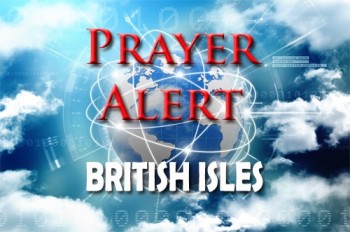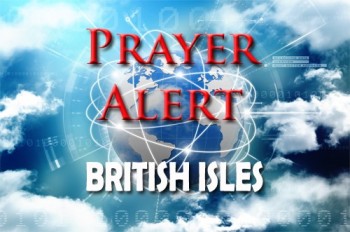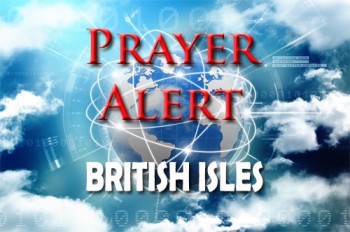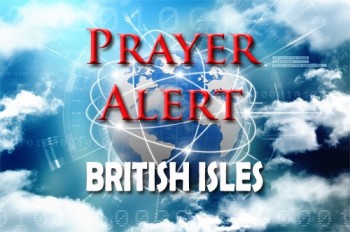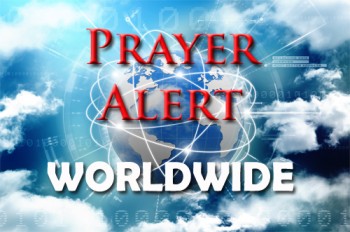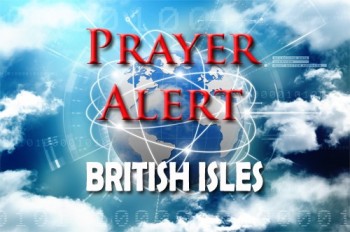Displaying items by tag: vulnerable people
Some who shielded need support now
Twenty charities are calling for more support for patients with severely weakened immune systems who risk severe Covid illness if they catch the virus. Many have had three jabs, but still need a fourth for better protection. For example, Hal Cohen had a kidney transplant two years ago and takes immunosuppressants to stop his body rejecting the organ. He had his third vaccine in July but was told despite this that his body is not making enough antibodies to fight off the virus. The charities said, ‘Those who are immunosuppressed due to a health condition or treatment are advised to have a fourth Covid jab three months after their third dose.’ They are calling a smooth rollout of booster jabs for these people, which should provide much needed extra protection.
Coronavirus - job or health?
Thousands of clinically vulnerable people have been shielding for health reasons. This guidance was gradually relaxed, and now the government has told them that they no longer needed to shield. They now face returning to work in the autumn. One of them, Kate, lives in Leicester and is currently locally locked down, but expects to return to work in September. This is daunting for her, especially as trips which used to be mundane now seem very risky. She has gone out twice since March. ‘It's quite nerve-wracking,’ she said. ‘I've been to the dentist and it's absolutely fraught with danger.’ Many are like her - nervous about how to go about daily life, unsure about the reality of wearing masks in shops and using customer one-way systems while their immune system is still severely depressed. Eleven charities have called for the Government to introduce furloughing for high-risk workers in this situation to avoid job losses.
Coronavirus problem in care homes
There are 15,517 care homes in England, and 200 hospitals. HC-One, operating 350 homes, had 311 coronavirus deaths. The Methodist Homes Association reported 210 deaths in 131 homes. However the official statistics at the same point recorded only 217 coronavirus deaths in care homes in England and Wales. Pray for the Care Quality Commission to investigate and update recorded deaths daily from the 15,517 residential and nursing homes. Care workers see up to twenty clients during a shift. The Government's advice to residential care is almost the same as for hospital workers: single-use disposable gloves, aprons, and face masks. Pray for speedy delivery of these nationally. The government now promises that care home residents who develop symptoms will be tested. Care providers are reporting at least a quarter of their staff in isolation. Pray that the Government is able to keep its promise to recruit 20,000 social care staff by July and test the vulnerable for coronavirus.
Rural food lifeline for vulnerable
Families in rural England are totally dependent on volunteers delivering food during the coronavirus crisis. Many households face long journeys to buy food - more difficult if they are self-isolating. Catherine Boyes’ son has cystic fibrosis and she is shielding him by staying home. She says, ‘Without these deliveries my children would starve.’ The mother of six, living on a farm on the edge of the North York moors, struggled to get a regular delivery from a supermarket due to surging demand and is reliant on the Pickering Help Network to deliver supplies. Pauline Hewitt, delivering food, said, ‘There is a real sense of fear and panic among some people about how they are going to get their shopping in an area like this. We have spent a lot of time reassuring people that whatever happens, we will deliver a weekly supply of food.’
Syria: fragile ceasefire and coronavirus
A ceasefire few expected to last is holding in Idlib, for now - but the last rebel-held area in northwest Syria is bracing itself for the expected onslaught of the deadly coronavirus. The 5 March truce between Russia and Turkey halted a dangerous escalation of nine punishing years of war in Syria, but Idlib's breathing space is fraught with fear of the new enemy. The health system has been destroyed by bombing by Russian and Syrian warplanes. Nearly a million displaced people, sheltering inside flimsy tents, or on open ground, have few defences against the powerful Covid-19. ‘There's a humanitarian and political imperative for a complete, immediate nationwide ceasefire throughout Syria’, said the UN special envoy, in his recent briefing to the UN Security Council.
Vulnerable people in secure units
Up to fifty patients who should be released, some with learning disabilities and autism, are stuck in secure units run by mental health hospital charities. St Andrew's Healthcare treats up to 900 patients with severe mental health and learning difficulties. 90% of referrals are from the NHS and need specialist care. However there is a lack of suitable community places, so seclusion is the emergency response. Seclusion rooms are bare, with a hatch in the door for patients to receive food and have physical contact. BBC TV footage showed a teenager locked in seclusion, able to touch their parent only through a door hatch. Patients are supposed to be admitted to these units for nine to 18 months, but the average stay nationally is five years. One patient was detained an extra 524 days after they should have been released.
